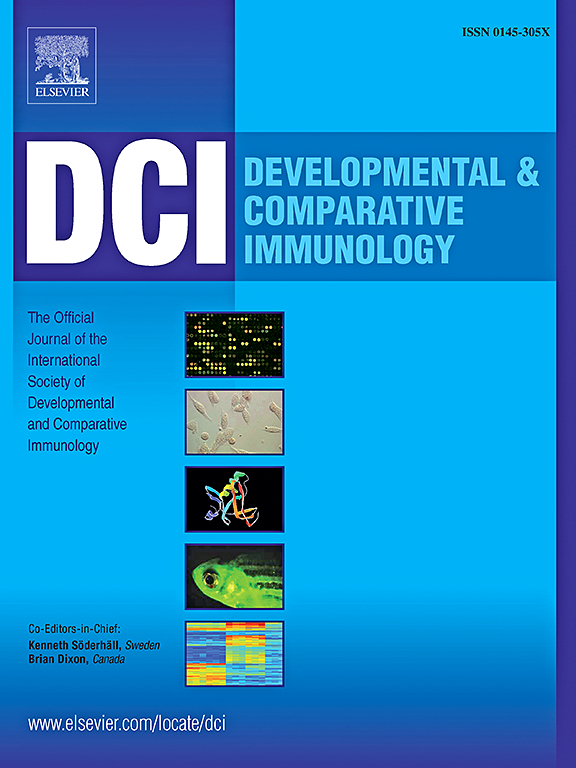AjMALT1 promotes Vibrio splendidus-induced inflammation through the NF-κB pathway in Apostichopus japonicus
IF 2.7
3区 农林科学
Q1 FISHERIES
引用次数: 0
Abstract
Mucosa-associated lymphoid tissue lymphoma translocation protein 1 (MALT1), an intracellular signaling molecule, is widely expressed during inflammatory responses. To investigate the immune function of AjMALT1 in Apostichopus japonicus, the full length of AjMALT1 gene was cloned using transcriptome data and RACE technology. The results showed that AjMALT1 was distributed in all tissues, with higher expression found in coelomocytes and intestine. The expression of AjMALT1 was significantly upregulated in Vibrio splendidus-challenged sea cucumbers, as well as in coelomocytes exposed to inactive V. splendidus, and was positively correlated with the expression of the pro-inflammatory cytokine AjIL17 and the inflammasome component AjNLRP3. Further investigation using specific siRNA to silence AjMALT1 for 48 h revealed that the expression of AjIL17 and AjNLRP3 was reduced under V. splendidus stimulation. Additionally, histological observations showed a decrease in intestinal inflammation. Interference with AjMALT1 also led to downregulation of AjTRAF6 and AjRel expression, as well as inhibited nuclear translocation of AjRel. These findings suggest AjMALT1 exacerbates intestinal and coelomic inflammation by activating the AjTRAF6-dependent NF-κB pathway in A. japonicus.
求助全文
约1分钟内获得全文
求助全文
来源期刊
CiteScore
6.20
自引率
6.90%
发文量
206
审稿时长
49 days
期刊介绍:
Developmental and Comparative Immunology (DCI) is an international journal that publishes articles describing original research in all areas of immunology, including comparative aspects of immunity and the evolution and development of the immune system. Manuscripts describing studies of immune systems in both vertebrates and invertebrates are welcome. All levels of immunological investigations are appropriate: organismal, cellular, biochemical and molecular genetics, extending to such fields as aging of the immune system, interaction between the immune and neuroendocrine system and intestinal immunity.

 求助内容:
求助内容: 应助结果提醒方式:
应助结果提醒方式:


